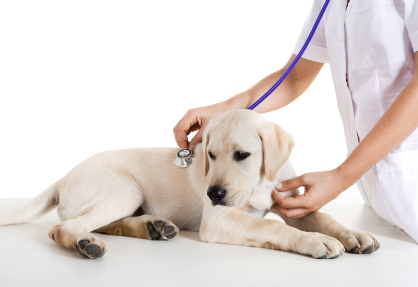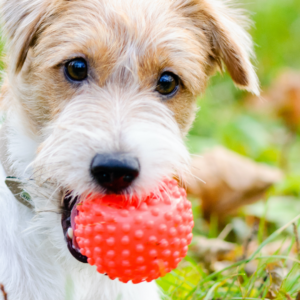Do you have a recent new addition to your family? Congratulations on your new puppy! To help you with the transition here are some tips to help you along the way.
To start, you should bring your puppy in to a veterinarian that you have chosen for a full physical exam and vaccines. Puppies require 3 sets of vaccines given four weeks apart starting at eight weeks of age. Your veterinarian is a great source of information when it comes to your questions. If there are any concerns regarding the health or behavior of your pup this is the time to ask! Don’t be afraid to go to the vet with a list of questions in hand.
Your veterinarian will most likely discuss a diet recommendation for your pup at your first visit as well. Feeding a proper diet to your new pooch is just as important to him as it is for us!
At the appropriate age, your veterinarian will recommend spaying or neutering. This can reduce the chances of cancer of reproductive organs as well as other health issues that can arise if your pup is left intact. Spaying & neutering timing can depend on the breed, weight, health and personality of each pet.
Something else you may want to consider is microchipping. A microchip implant is beneficial especially if he were to go missing. If this was to happen and he was found and brought to an animal hospital or shelter he can be scanned for the microchip. This ID would contain all of your information including your up to date address and contact information. It can also help too if he is wearing a collar with tags that have your contact information.
Your puppy will need to be housebroken as well. This can take some time so patience is required! Puppies should be taken outside every two hours and immediately after a meal. Crate training or keeping your puppy limited to a small area should help to prevent accidents as they don’t like to soil where they sleep. Keep an eye on your pup and watch for signs that they may need to go – like circling. If you see this, take him outside right away.
Crate training is a great idea. A crate can provide a safe and secure area when you can’t be there to monitor or when he’s tired he can go in on his own. Add some soft bedding so it’s comfortable for him. Never use a crate as punishment. You want him to learn this is a good place for him, not negative.
Training and puppy socialization is one of the most important things you can do for your pup. He needs to learn appropriate behaviors and boundaries. There are classes that are available for training and socializing to help teach the both of you how your puppy should behave. The more he is socialized the more comfortable he will become around other people and dogs. This will help to prevent territorial and aggressive behaviors.
Don’t forget to puppy proof your home! Puppies love to chew so make sure there are chew toys accessible for him and easily available to redirect him if he starts to get into something he shouldn’t. Remove toxins and poisonous plants. You can purchase electrical cord protectors so that your pup can’t chew them.
Finally, enjoy! You will develop a bond and friendship with your new pup that you will hold in your heart for a lifetime.




